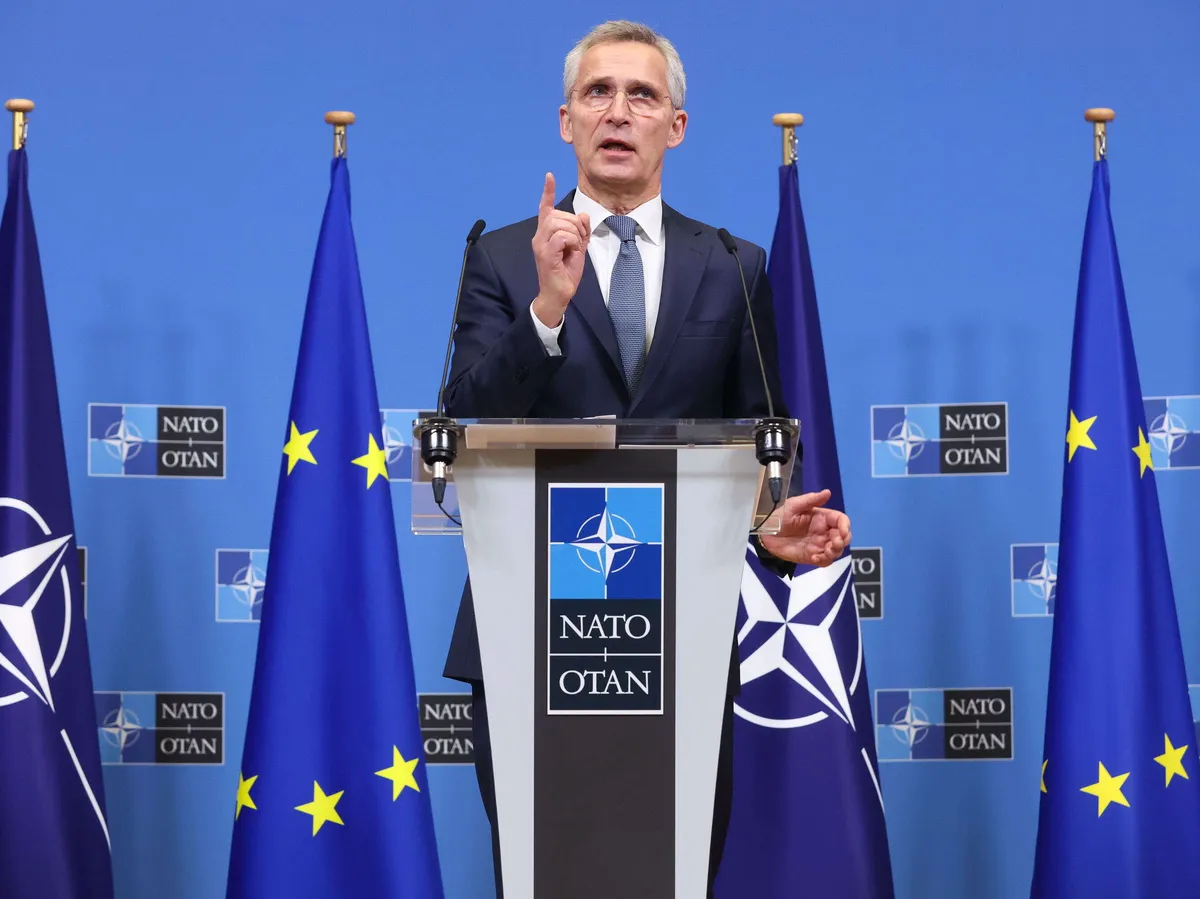Brussels
Secretary General of NATO Jens Stoltenberg says he is convinced that all NATO countries will ratify Finland’s and Sweden’s NATO membership in their national parliaments.
Hungary and Turkey are the only NATO countries that have not yet ratified the duo’s NATO membership. Hungary has promised to deal with the issue in February. Turkey has not given a timetable for ratification.
Stoltenberg was asked at a press conference in Brussels on Tuesday whether Finland and Sweden have already done enough to respond to Turkey’s security concerns, or whether Turkey has the right to demand even more measures from the countries before it agrees to ratification.
In his reply, Stoltenberg repeated the same message as many times before: the accession process of Finland and Sweden has progressed faster than ever in NATO’s modern history.
“Usually the joining process takes years. Finland and Sweden applied for membership in May. Already in July, all 30 NATO countries signed the accession protocols,” said Stoltenberg.
Finland and Sweden became observer members of NATO in the summer. However, all NATO countries must ratify the countries’ accession protocols in order for the countries to become full members.
According to Stoltenberg, the cooperation document signed by Finland, Sweden and Turkey at the Madrid summit has made the rapid progress possible. It confirmed that there are no arms export bans between the countries.
The document also agreed that the countries will establish a cooperation mechanism to enhance the fight against terrorism and organized crime.
“This is already happening. The countries have established a permanent mechanism through which they exchange information and work together to combat security threats.”
However, according to Stoltenberg, Turkey has valid security concerns.
“No other NATO country has suffered as many terrorist attacks as Turkey. That is why it is welcome that Finland and Sweden are working on these issues.”
Stoltenberg also pointed out that Finland and Sweden are now in a very different situation than before applying for NATO membership.
Many NATO countries have promised countries bilateral security arrangements. NATO has also increased its presence in the Baltic Sea region. In addition, as observer members, Finland and Sweden have received extensive attendance rights at NATO meetings and committees.
“It is impossible to think that Finland and Sweden would face a military threat without NATO reacting to it,” he stated.
The EU and NATO are intensifying their cooperation
The European Union and NATO signed their third joint declaration on Tuesday.
It explains what kind of cooperation the EU and NATO plan to do in the future.
Among other things, they plan to respond to the growing geostrategic competition and the threats brought by climate change in cooperation, strengthen their resilience, protect critical infrastructure and protect themselves from information influence by foreign countries.
In the paper, the EU and NATO condemn Russia’s attack on Ukraine and demand that Russia end the war immediately.
The declaration was signed by Stoltenberg as the representative of NATO and the president of the European Commission from the EU side Ursula von der Leyen and the President of the European Council Charles Michel.
Stoltenberg recalled that the trio met at NATO headquarters just a few hours after Russia attacked Ukraine in February.
“President Putin wanted to take over Ukraine in a few days. He also wanted us to disperse. He failed on both counts.”
EU countries are currently debating whether Leopard 2 main battle tanks should be sent to Ukraine. Ukraine wants them, and Poland and Spain, for example, would be willing to give them.
Leopard 2 is a German-made tank, so according to international arms export agreements, German permission is needed to export it. Germany has so far been reluctant to grant permission, as it fears that taking the Leopards could escalate the war in Ukraine.
EU Commission President Ursula von der Leyen stated that she has said since the beginning of the war that Ukraine should receive all the military equipment it needs to defend itself.
“That means advanced anti-aircraft, of course, but also other advanced military equipment. Ukraine defends [itsensä lisäksi] also the UN Charter and international law,” von der Leyen stated.
